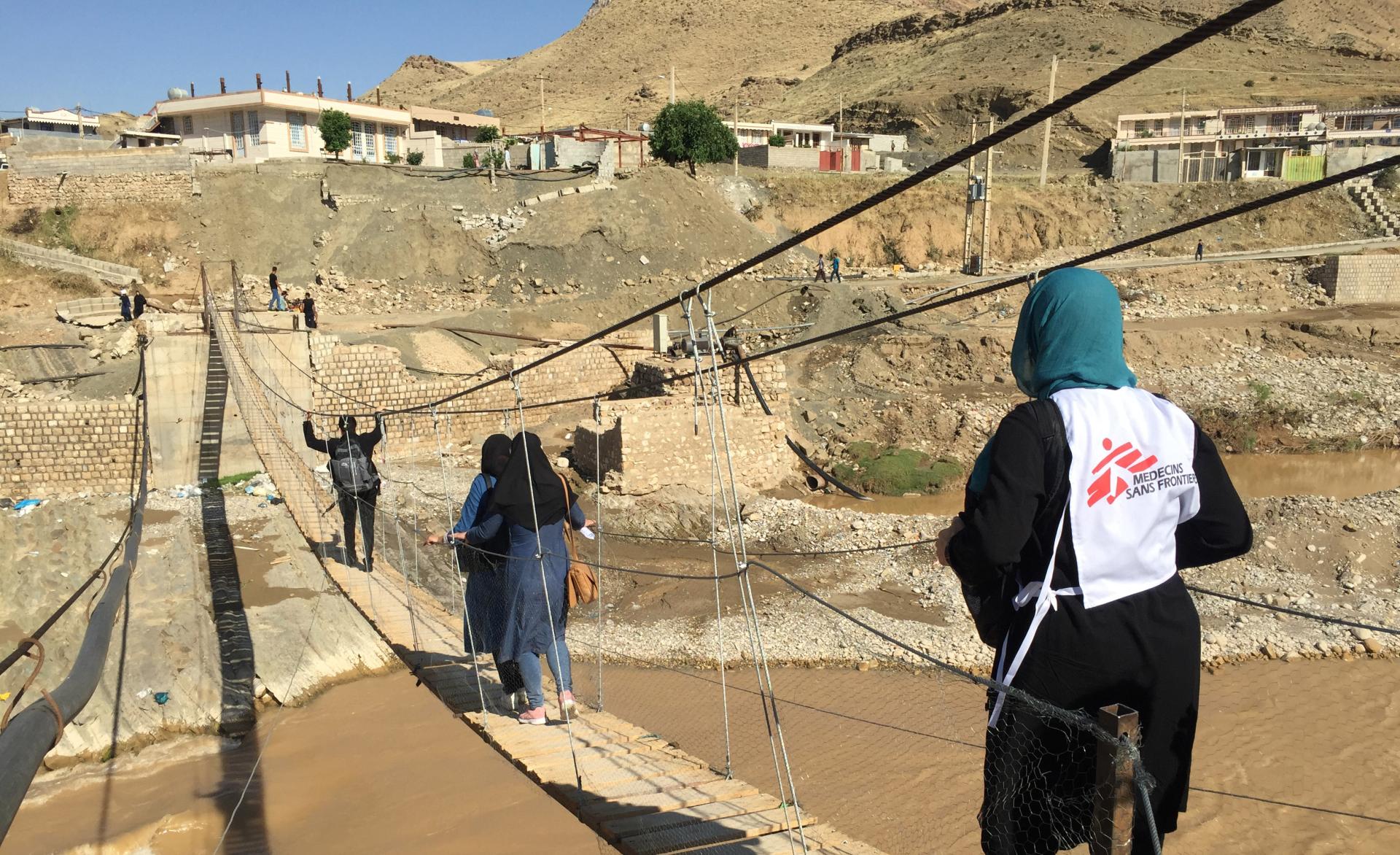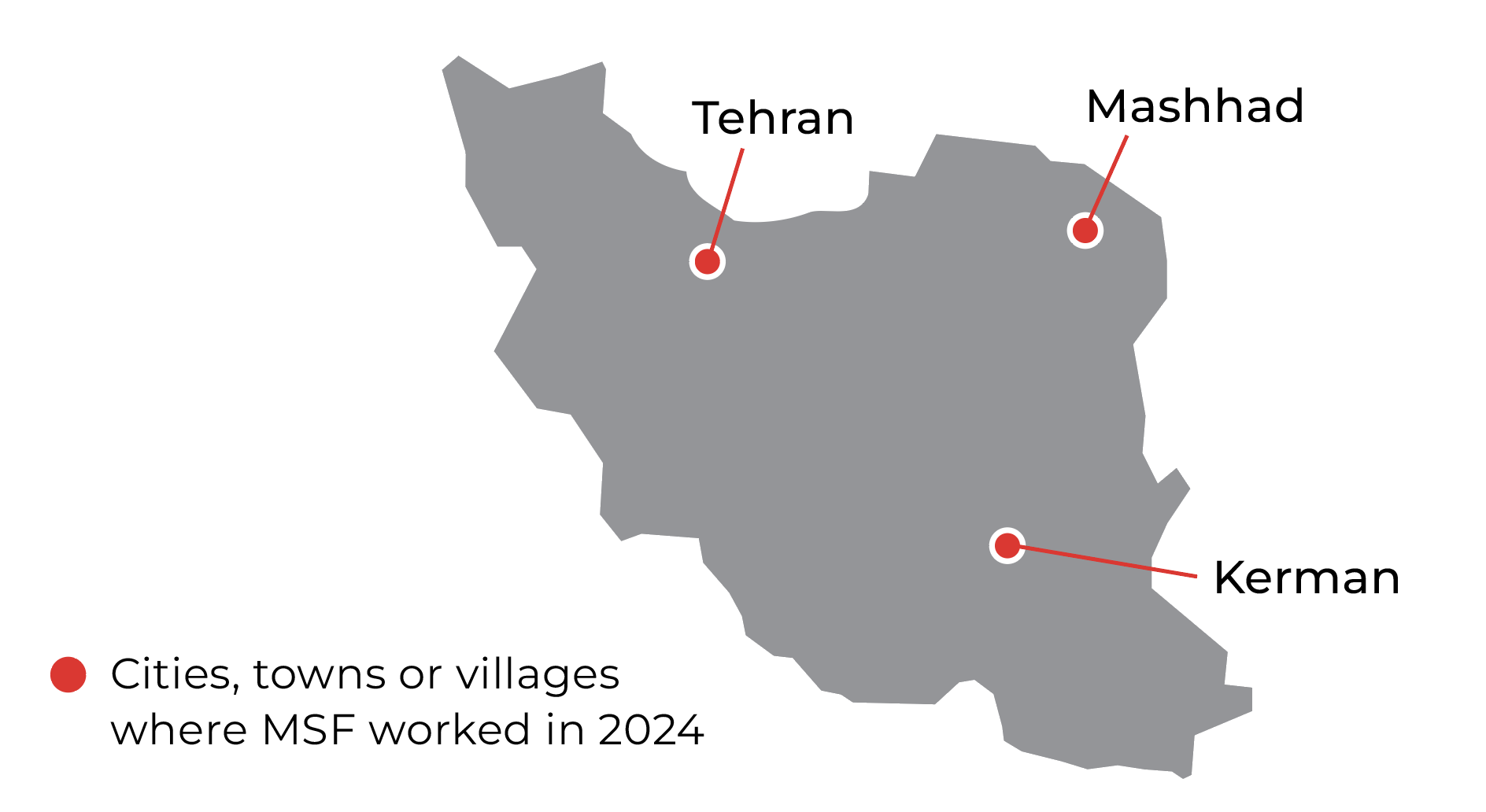
Iran
We also provide basic healthcare for Afghan women, with a focus on sexual and reproductive health, through a facility in the Darvazeh Ghar neighbourhood and mobile clinics.
Our other activities include nursing care, mental health and social support, and referrals for specialist healthcare and other services
Our activities in 2024 in Iran
Data and information from the International Activity Report 2024.
110
11
€4.2 M
4.2M
1990
199

In Mashhad, Iran’s second-largest city, located near the border with Afghanistan, we conducted medical consultations and screening for infectious diseases through mobile clinics. Counselling, social support, health education, and referrals to specialist health facilities were also available at our clinic in Golshahr district, where most of the Afghans in the city have settled.
In Razavi Khorasan province, we offer mental health support and treatment for hepatitis C to people who use drugs in rehabilitation centres in Torbat-e Jam’s ‘Guest City’, a government-run refugee settlement.
Further south, in Kerman city, we started providing basic healthcare and referrals for specialist care exclusively for Afghan refugees and migrants. We are also rehabilitating three health facilities to improve access to basic healthcare services for newly arrived and unregistered Afghan refugees.
IN 2024

46,400
46,4
3,340
3,34
530
53
- Try a different country, year, format, or topic.
- Clear one or more filters